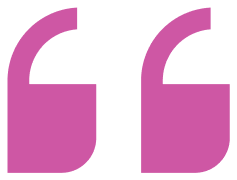Years ago, the most confrontational person in my building wasn't a colleague: it was our Head of Culture. On paper, his job was to support teachers, build systems, and help kids regulate. In reality, he was often reactive, inconsistent, and quick to blame teachers when things went wrong. When students melted down, I'd find myself de-escalating fights, calling home, writing behavior plans, and running restorative conversations, essentially doing his job on top of teaching, because the kids needed someone to show up. The turning point for me was realizing I couldn't control his leadership, but I could control my own. In moments where he tried to undermine my decisions with students, I stayed calm and drew a clear line: "I'm happy to collaborate, but I'm not okay with your reaction to this situation. Let's refocus on what this student needs." That sentence became my anchor: firm, not disrespectful, and always centered on the kids. From there, I shifted my strategy: I centered students, not ego. When I stepped in to handle culture issues, I did it for the kids, not to prove a point. That mindset kept me from getting stuck in resentment. I also put systems in writing and created simple protocols for my classes including clear expectations, call-home logs, reflection sheets, restorative questions. That way, my classroom culture didn't rise and fall with his mood. Finally, I ensured to document patterns. I kept brief notes on interactions, student incidents, and how I addressed them. That protected me and also made it clear to leadership how much invisible work was happening on my part due to his lack of work. What kept my career moving forward was refusing to let his incompetence make me smaller or more cynical. Instead, I used that as proof of my capacity to lead culture well by building relationships, holding firm boundaries, and keeping expectations high without shaming kids. That experience ended up sharpening my voice as a leader. In the end, professionalism for me meant this: I would step up for students, but I would not silently absorb disrespect or incomptence. I could be the steady adult kids needed and the adult who said, "This isn't okay," when a leader wasn't doing his job. That balance, showing up fully for the kids while protecting my own dignity, is the strength I carry with me into every role I take on.
Cynthia Valenti,
English Teacher | Curriculum Designer | School Leader,
School District of Philadelphia: Central High School









































